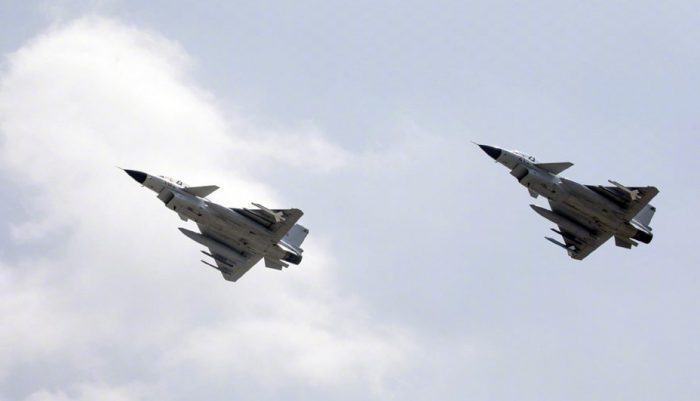China is reluctant to sell its Chengdu J-10C fighter jets in exchange for Iranian oil and natural gas, reports suggest.
Quoting military experts, South China Morning Post reported that Iran can’t pay dollars or euros in cash to China. Instead, Tehran prefers using oil and natural gas in exchange for weapons.
On the other hand, China has already accumulated huge energy reserves and it wants to make money through weapons deals. Therefore, Bejing is reluctant about a potential J-10C deal with Tehran, Zhou Chenming, a Beijing-based defense analyst, told SCMP.
The deal would have been more attractive if Iran had offered hard cash but a series of economic constraints prevent Tehran from doing so.
The Chengdu J-10 is a single-engine, lightweight multi-role fighter jet capable of all-weather operation, mostly designed for air-to-air combat but also suitable for strike missions. Compared to its Russian, European, and American counterparts, the Chinese J-10 is reportedly the cheapest fighter jet available in the market.
Powered by a Russian engine giving it a maximum static thrust of approximately 123 kN, the single-engine tail-less canard delta wing J-10C is an upgraded version of its predecessors, sporting an Active Electronically Scanned Array (AESA) fire control radar and is made of composite materials for high strength and lower weight.

China will also have to think about the potential geopolitical implications of such a deal, according to the experts.
Iran has just escaped the 13-year UN arms embargo and is looking to augment its military arsenal. But Tehran’s ambitions are limited by its own domestic economic issues and the threat of American sanctions on anyone trading with Iran.
Iran, thus, has offered a barter deal to China rather than waste precious foreign exchange reserves. Earlier there were rumors about Iran dipping into the US$3 billion financial aid provided by Qatar but in light of the recent deflation of its national currency, that won’t be advisable.
The barter deal is being sought in the context of the 25-year China-Iran Strategic Cooperation Agreement signed on March 26 this year. While the deal did not mention massive military concessions, there is scope for further military ties within it, according to The Diplomat.
China’s priorities should be sailing through the aftereffects of the trade war with the US and the COVID crisis, according to Ni Lexiong, a Shanghai-based military expert. It already has enough stable oil and gas supplies in an environment where the prices of these resources are anyway dipping.
China, a country more prone to “stable relations with geostrategic advantages than volatile ones likely to spark conflict,” should also be cautious about what resumed military engagement with Iran will signal to Israel and Arab countries in the region.
“China realizes that its interests may be at risk if it loses the ability to maintain balance in its relationship with Iran and its regional trading partners — Saudi Arabia, the United Arab Emirates — as well,” Abdullah Al Junaid, a Bahraini strategic expert told Defense News.
He also stated that after its defense export legislation on October 28, China sent a message to the United States that it “realizes its international responsibility and that the strategic agreement with Iran will not harm international security”.
But the engagement with Iran also has the potential to discredit American hegemony. Jon Alterman, senior vice president at the Center for Strategic and International Studies, stated that an armed Iran acts as a useful foil for Beijing by keeping US Navy busy in the Gulf than in the Indo-Pacific.
Follow EurAsian Times on Google News